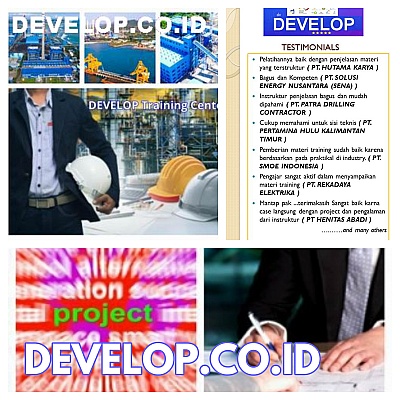LNG Safety and Technology Workshop
Training Descriptions
• This course contrasts the technical and commercial differences between LNG and natural gas to point out benefits and constraints that arise from the LNG option. It will examine the technical process of producing LNG, plant design considerations, global comparisons along with the design of regasification terminals.
• A description is given of the elements in the ‘gas chain’ which apply to LNG and of drivers that would lead to optimization of design and commercial operation, and the range and role of relevant parties to a successful LNG project. LNG safety is covered in detail, along with ways and means by which a new entrant to a proposed LNG project may ensure an investment that meets expectations.
• An introduction to terminology and practical ‘rules of thumb’ should further enhance the participant’s ability to immediately contribute to a successful gas project – and to ask the right questions to test and improve the viability of a proposed project.
• New initiatives in floating LNG technology, both liquefaction and regasification, will be examined. Floating regasification projects are contrasted with land-based projects. Actual case histories will be used frequently to demonstrate learning points.
You will not need any other materials for this course. Hand out/ book will provide 875 pages
Training can do by Online and Class Room Training with final writing test
Training Syllabus
• The LNG World
• LNG Standard Properties
• How is LNG Industry is Presented
• Specific Properties
• Prevention and Mitigation Measures
• The Jetty Head
• LNG Carriers
• General Approach to Safety
• General Approach to Safety
• Spiral Wound Cryogenic Exchanger
• Spiral Wound Cryogenic Exchanger
• Specific Cryogenic Duty Items
• Research & Development
• LNG Flares
• LNG processes
Training Objectives
• Understand the technical procedures for turning natural gas into LNG, its regasification and safety considerations
• Review LNG plant and terminal design, storage and shipping considerations
• Identify recent developments in FLNG technology
• Discover the unique characteristics of LNG that broaden yet constrain the commercial and technical links in the ‘gas chain’
• Generate various options for LNG market development proposals
• Discover risk and risk mitigation strategies to aid decision making
• Analyze LNG sales agreements and tactics to more effectively negotiate contract terms
• Discover perspectives of the investor, the operator, the customer and government towards LNG projects
• Recognize political and diplomatic implications of international trade in LNG, including recent trends
Participants
• This course is not a basic level introductory course. It has a specific techno-commercial focus for technical and business oriented professionals who are either new to the LNG industry or experienced in one part but could benefit from a wider perspective.
• Technical (exploration and production, geoscience and engineering)
• Non-technical (commercial, finance, government, marketing and legal) backgrounds
• Those who have recently joined an LNG market development team with expertise in one area of gas development
 LNG Safety and Technology
LNG Safety and Technology QUICK REGISTER :
Tags: bimbingan teknis LNG Safety and Technology Workshop, code standard LNG Safety and Technology Workshop, Jadwal info Pelatihan LNG Safety and Technology Workshop, Onshore Offshore Training LNG Safety and Technology Workshop, Pelatihan diklat LNG Safety and Technology Workshop, Pelatihan Online LNG Safety and Technology Workshop, sertifikasi LNG Safety and Technology Workshop, teknisi ahli LNG Safety and Technology Workshop, Training Kursus Seminar Webinar Bimtek LNG Safety and Technology Workshop, Workshop Events Pelatihan Tatap Muka LNG Safety and Technology Workshop




 How can we help you today?
How can we help you today?